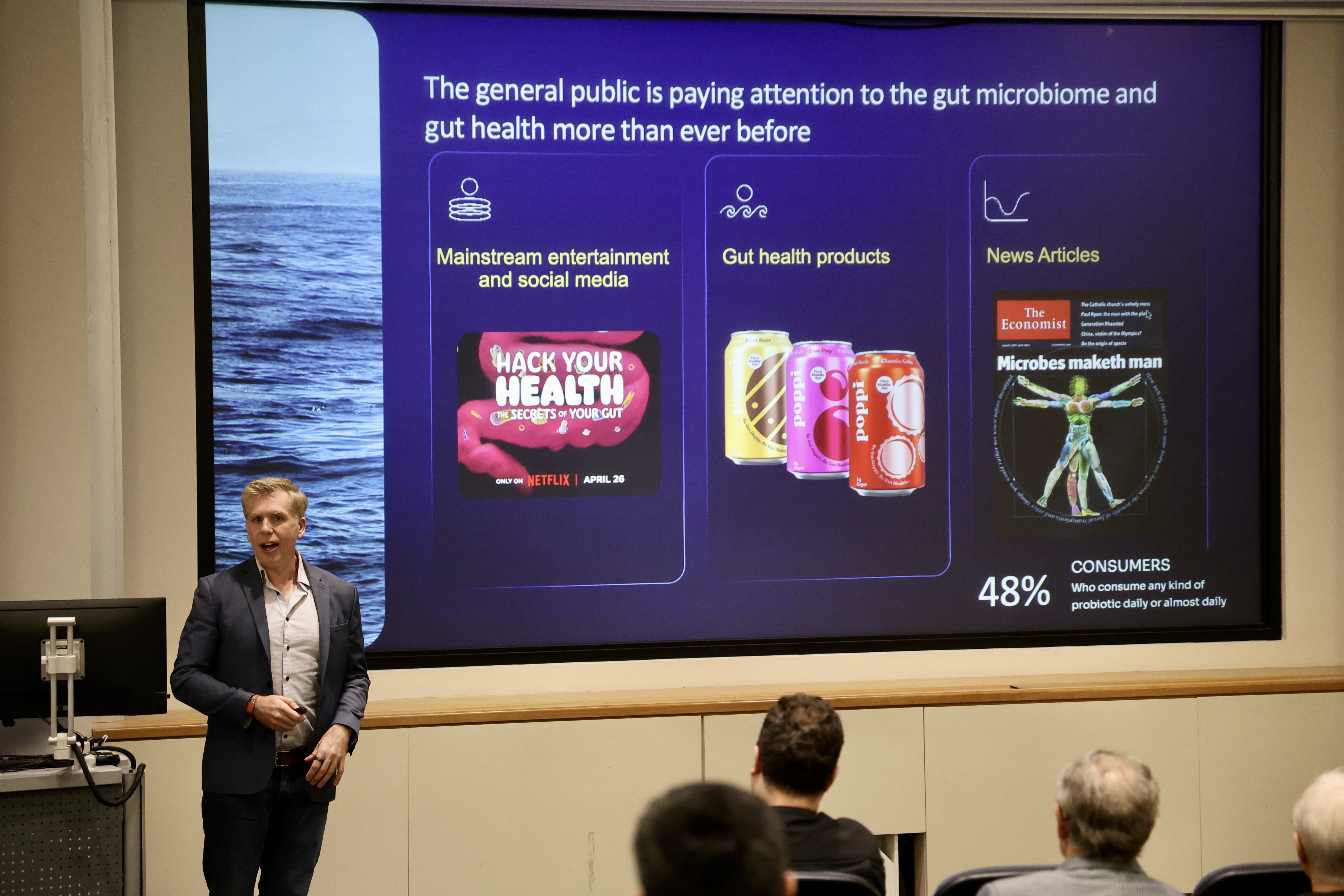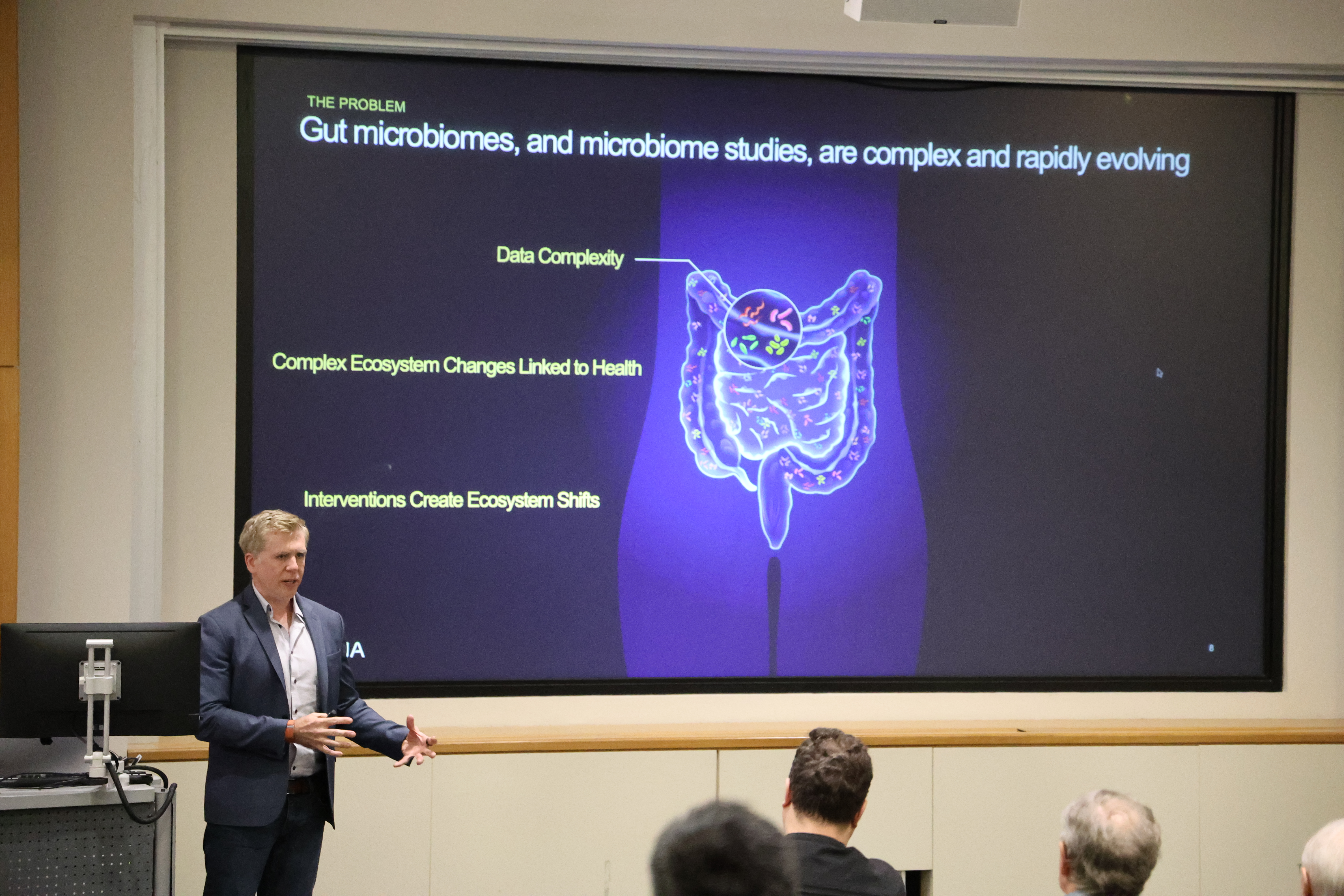Leo Grady, an internationally recognized industry leader in AI for health, explored the applications of large language models in understanding the gut microbiome's impact during a seminar held by the Oden Institute of Computational Engineering and Sciences. The special seminar, hosted by Charley Taylor, Director of the Center for Computational Medicine, was held on March 6, 2025. Grady’s presentation surrounding the work of his newest company, Jona, engaged an audience of faculty and students from the Oden Institute, alongside clinicians from Dell Medical School.
The gut microbiome has been demonstrated to have broad implications in human health and disease, showing correlations with several mental health disorders, autoimmune diseases, and digestive disorders. The efficacy of certain medications, fertility, and human longevity may also be underpinned by the complex web of microorganisms that call our digestive tracts home. While research surrounding the microbiome’s impact on specific diseases is moving at a breakneck pace, the new prevalence of data is often difficult for clinicians and patients to put into practice, in the form of individual probiotic supplements, medications, or dietary and lifestyle changes.
“This is where Jona comes in,” said Grady. The company created a Large Language Model (LLM) which is trained exclusively on medical and scientific literature sourced from the PubMed Database.
As the AI tool extracts analytic and interventional knowledge from evidence based sources, it’s bridged with Next Generation DNA Sequencing techniques, which reveal the makeup of an individual patient’s gut flora.
“This allows us to sort through a huge volume of data. Our LLM is able to rank studies in terms of strength and efficacy, allowing us to provide our users with a medical digital twin that represents their gut microbiota - a summary of links to certain diseases based on elevations or depressions of certain flora, and a unified set of interventional recommendations shown to reduce these links in terms of supplements, diets, and lifestyle modifications,” Grady said.


